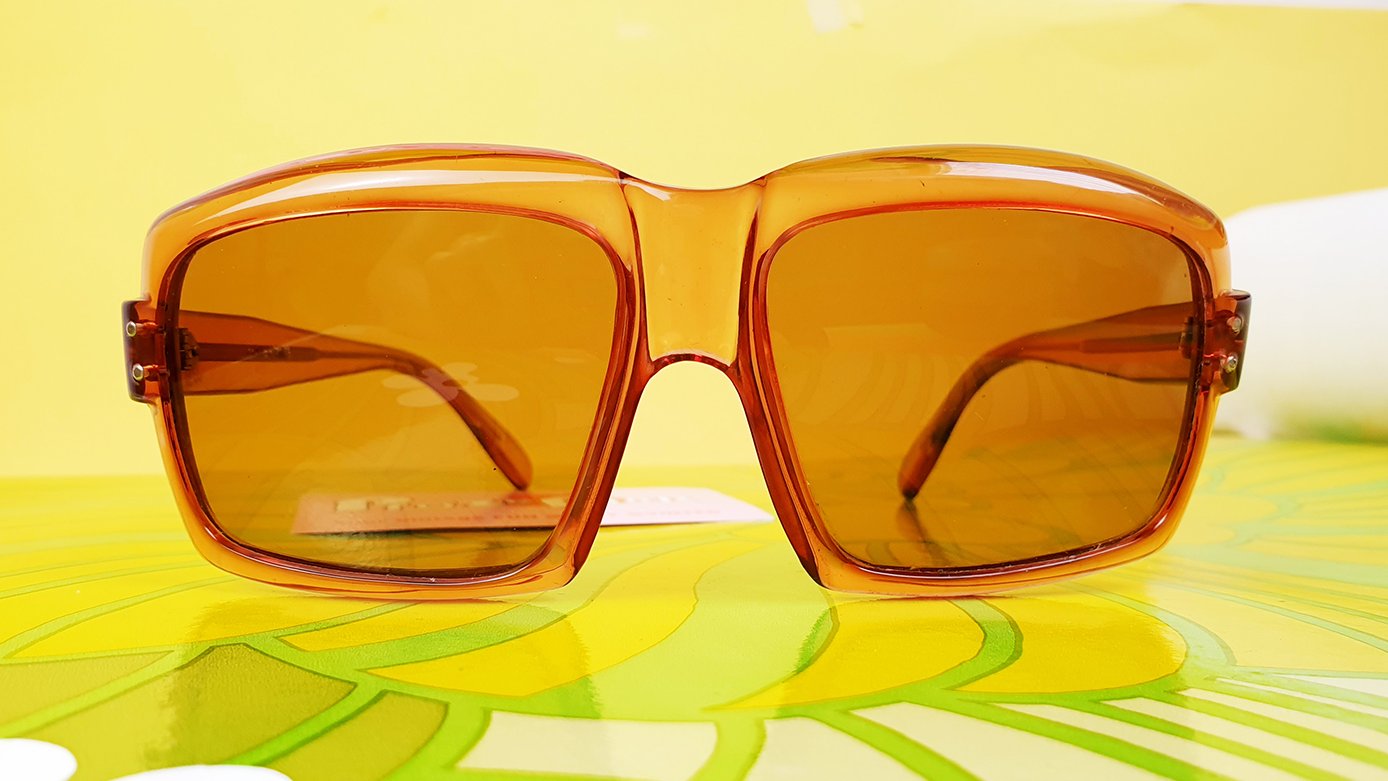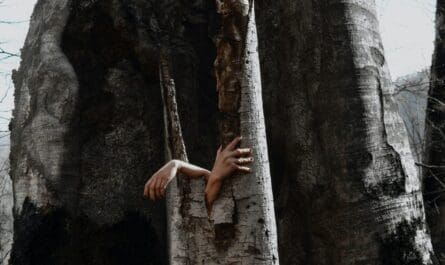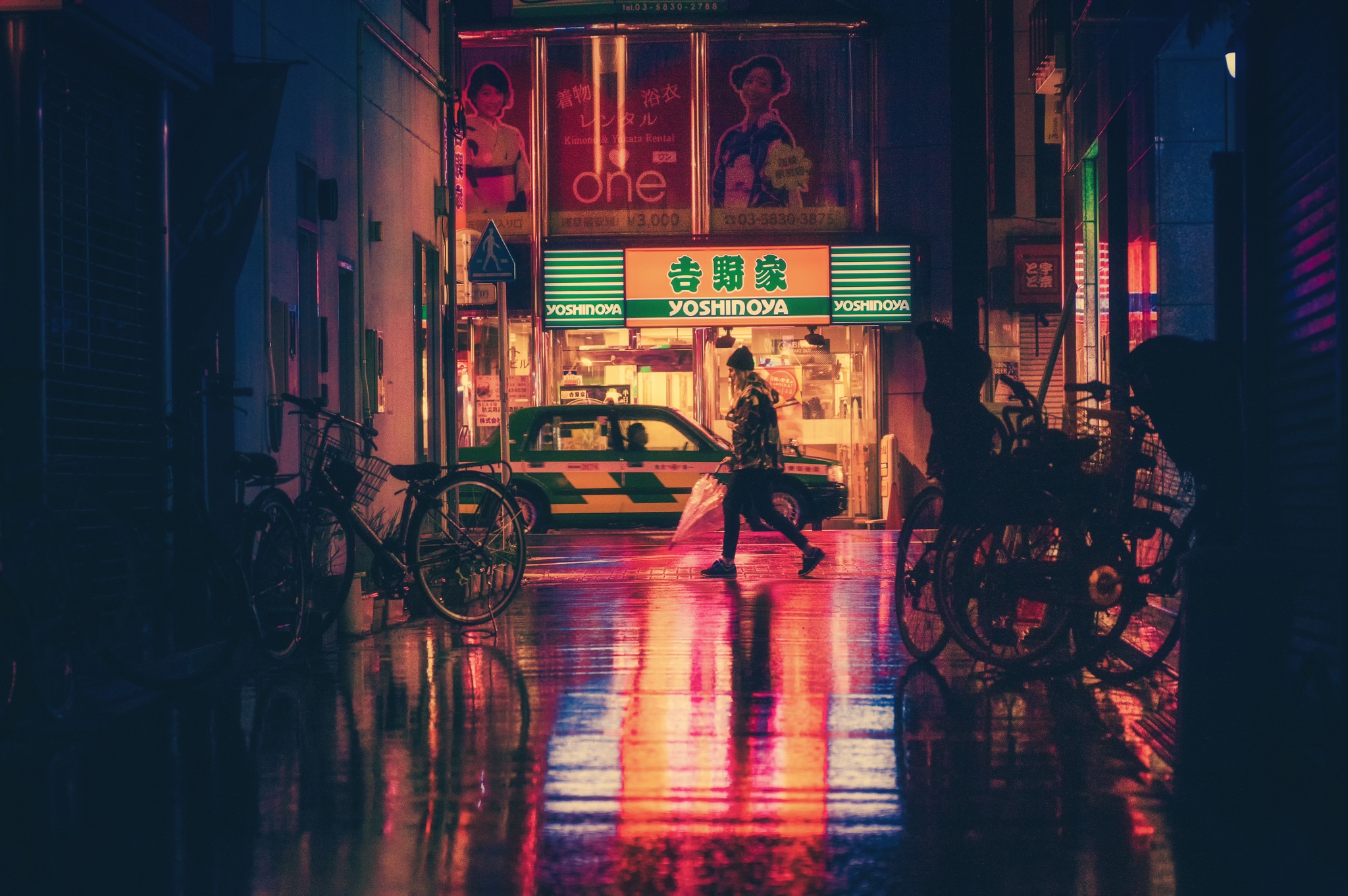[2388 words]
Emerald did not tell Harrison she volunteered at BIT, the London underground information service. She loved the dingy office cluttered with stained coffee cups, kittens, and exhausted workers. You met the most interesting people there. Anyone from down and out elders looking for a free cup of tea or soup, to college students with backpacks and guitars looking for life, to American soldiers on leave and shell-shocked from the Vietnam war, to girls like her wearing fringed dresses or mini-skirts. She couldn’t tell Harrison about the kids coming down from acid trips, or really half of what went on there.
Though it was only one in a random series of employments, Emerald also loved her current real job at The Perceptive Plum, across the street from BIT. She adored selling vintage clothes, with their faded silks and bits of lace. She loved things that caressed and excited the senses; Harrison loved things that caressed and excited the mind. They fit together, she thought, like yin and yang.
Jesse, a customer at the Plum, had told her about BIT. Not verbally, as he was deaf, but he’d handed her an info sheet saying BIT was looking for volunteers. She had sold Jesse the most fab purple jacket with blue velvet embroidery. It hung so nicely on his shoulders. Perhaps that is why she had followed him up the narrow, crooked stairway to the counterculture.
It was seven P.M. and Harrison was a little later than usual. She was slightly annoyed, because for once she’d made an actual dinner, though it was just a roast and canned peas. He was a popular professor, and students made extensive use of his generous office hours, often keeping him late, as she had done, during her brief fling with King’s College London. The lateness wasn’t his fault, but she picked moodily at her meat as he complained that his students did not keep up with their reading. Also, there was a student he particularly worried about as the boy wrote so descriptively about smoking marijuana in his fiction exercises. Emerald did not mention the joint she’d shared with a co-worker in the alley behind the Plum. Nor afterwards, how the colors of the vintage fabrics had become deeper and how her fingers could read stories in the old garments.
After dinner Emerald washed up, aware of Harrison behind her at the rickety kitchen table, his tufted, oval-shaped head bent over his thick worn copy of ‘Ulysses’ as he jotted notes in the margins, presumably important points he would bring forth in his lectures. She could imagine a girl in a front seat, eyes glowing at his brilliance, intricate earrings jangling as she breathed. Only two years ago, that girl had been Emerald.
Dishes done, she sashayed into the bedroom and plunked down on their Indian bedspread-covered mattress which Harrison had neatened to a T. Squiggling around to muss up the bed, she settled into a comfy cross-legged position, clicked on her lava lamp, and gazed at the lamp’s blooping blobs.
Harrison was now working on students’ papers while listening to his symphonies in the tiny living room/study. Rock music was what she loved. However, she was able to dream up the most fantastic images when listening to his classical music. Camels crossing deserts topped with riders wearing mysterious robes. Fairies flitting among rose gardens.
She pulled her collection of lipsticks from a wooden box. These flavored tubes made her unaccountably happy. The colors matched the flavors; creamy yellow for eggnog, brown for chocolate, maroon for cinnamon, pink for peppermint, ivory for vanilla.
“Hare,” She leaned against the doorway holding her collection. “Remember when you gave me these?”
Harrison’s tight-lipped studying face softened, and he smiled. “Sure do.” He rose to hover over Emerald in the doorway. “Let’s have a taste.” He kissed her. “Mmm cinnamon.”
“Scents are so memorable,” Emerald said. “It’s like Proust! A la recherche du temps perdu or something.”
“Aah, Remembrance of Things Past.” Harrison nuzzled the top of her head.
“Yes, one day, one of us will be somewhere, and smell cinnamon, and look back on this time in our little flat,” said Emerald, as she imagined some kind of hazy future containing a dimly lit restaurant, chianti, and a man with dark wavy hair, a gold earring, and a purple velvet jacket. She slid her fingers over the embroidery on her long, flowy skirt which dipped down at the back of her waist, showing a bit of skin.
Harrison looked about to say something but instead took the pencil from behind his ear and returned to his papers.
It was crazy at BIT the next day. A young man hopped up on some drug, came in yelling with jerky movements and staccato speech. He needed a crash pad. He’d jumped bail. The two paid workers, Nick and Gwen, were researching legal strategies and she didn’t know what all. She felt glad of her small typing job, glad that others knew what to do with everything going on these days.
Jesse sat close by at the next typewriter, working on a project to rename The British Deaf and Dumb Society to simply The British Deaf Society. Maybe the world was a calmer place for him because he couldn’t hear. She glanced at him and he raised his eyebrows. His eyes glinted indigo blue. Jesse probably knew more about what was happening at BIT than she did. Nick could fingerspell; he and Jesse had long conversations in sign language.
The agitated young man pounded his fist against a bulletin board covered with papers, making several fall to the floor. One of the ubiquitous office kittens took refuge under Emerald’s desk. She could feel it quivering by her foot, so she picked it up, making a ‘oh poor kitty’ face at Jesse. He mimicked her expression and held out his hand for the kitten. Emerald passed it over, their fingers meeting in a moment of nurturing togetherness.
The man was escorted downstairs by Nick, and Jesse returned the kitten to a nest of old socks, but it became hard to focus on her typing. She was organizing a jumbled litter of scraps containing the details of organizations, communes, alternative presses, and head shops. It took concentration to get the addresses and telephone numbers down correctly. Jesse passed her a note. ‘Treat you to a coffee?’ She nodded gratefully.
The coffee bar was crowded but they managed to find a tiny booth at the back. As they sipped their drinks, they took turns writing on Jesse’s pad. She wrote to ask how his project was going, and among other things, he wrote ‘Are you married?’ ‘No, of course not,’ she wrote, including no mention of Harrison. As they parted to go their separate ways, Jesse shook her hand in a goodbye that felt simultaneously formal and, due to a faint pressure from his thumb, intimate.
The coffee get-togethers continued for several weeks. Emerald did not mention anything about Jesse to Harrison, nor anything about Harrison to Jesse. It seemed not exactly like two separate worlds, but more like she was two separate Emeralds. A sweet adoring former student with Harrison, and…she wasn’t sure who she was with Jesse.
One day, as she walked home after coffee, she passed a scruffy looking man walking arm in arm with a lady sporting smooth bee-hive hair, perfect make-up, and a slim black coat. A boy wearing blue jeans, a green army jacket, and a large backpack flashed a peace sign her way. Two girls in paisley bell bottoms ran boisterously down the street, long hair and pocketbooks streaming behind them. At one street corner, an old man and an old woman each held a sign. One read Protest Apartheid and the other read Free South Africa. So many different kinds of people in the world, she thought.
Strolling past a cinema, she thought about her first date with Harrison; the two of them pressed together in cracked leather seats, alone in the balcony of a small arty theater, sniffling at the sad fate of Antoine in ‘400 Blows’.
Harrison had wanted to walk through the rainy London streets, interpreting the film, but Emerald had coerced him into a cafe for tea and tarts. She remembered his face so clearly, hovering over his steaming mug, seeing only her, as if their surroundings were a thick fog, and she was the only light. Emerald, however, had been distracted by a young man behind the counter with a gold hoop in one ear, the display case with buttery pink pastries, and the young couple in the next booth who were arguing over a score in a football match. Even so, she had felt a closeness–a haze created by Truffaut’s cinematographic sensibilities encircling them.
Later, like a little cat, Emerald had curled inside Harrison’s arms, feeling the warmth of his tweed jacket, feeling she could hide away inside his embrace, and that Harrison, the professor, would keep the swirling colors of the world from overwhelming her, keep her from flying apart into puffy little wisps.
That night, as she was washing up from their dinner of applesauce and Cornish pasties, and remembering that first date, she felt the need to do…something.
“Hey,” she called from the kitchen, “let’s go to a flick tonight.”
Harrison turned. His face looked tired and as if he was about to say ‘no, I have too much work.’ But then he clapped a hand on his papers and said, “Let’s do! Fellini? I’ve been meaning to see 8 1/2 again.” He checked the newspaper for the time, and off they went.
After the movie, they spilled out into the night and a bustling mix of characters. Feeling exhilarated, Emerald grabbed Harrison’s hand. Then someone in the crowd took hold of her other hand, and someone else took Harrison’s free hand. They found themselves in a line of people being pulled along in a Fellini-esque parade. A boy dressed in an old- fashioned waistcoat and top hat pulled a comb and paper from his pocket, made a kazoo, and buzzed a tune from the movie. A woman in a belly dance costume, gyrated sinuously up and down the line.
Emerald looked at Harrison, surprised he had not pulled her away from the revelers, but he was as caught up in the moment as anyone. In the lamplight he seemed like a new person, not rumpled and tired, but an elegant stranger. The line swayed on in a magical movie afterglow.
Emerald glimpsed a man in a purple jacket. Jesse. He was farther up in the line, dancing gracefully in a sideways grapevine. She continued along in the line, but the magical Fellini feeling disappeared and she felt uneasy, though she wasn’t sure why. It wasn’t like she had actually been cheating on anyone. She and Jesse had never kissed, although there were the goodbye handshakes. And the time with the kitten. She hadn’t told Harrison about BIT, but she wasn’t sure why not.
The line started to disperse, and there was Jesse–walking toward them. He stopped in front of her with a little bow.
“Harrison, this is Jesse. Jesse, this is Harrison,” she said with accompanying gestures, surprised at how easy it was to make the introduction.
“Very nice to meet you,” said Harrison and put out his hand, which Jesse shook. Then Jesse shook Emerald’s hand as well, holding it for a good ten beats as he looked into her eyes. He raised his eyebrows and flipped his hands palms up, as if to say, Emerald imagined, What a night! or Fellini! or You have a boyfriend? Then he waved and disappeared into the night.
“Who was that?” Harrison asked. “Funny how he didn’t say a word.”
“He’s deaf. A customer.” She smiled gloriously into Harrison’s eyes and linked her arm with his elbow. “Talking is overrated,” she said.
Holding Harrison’s solid arm, seeing the shadows where Jesse had melted into the night, Emerald felt the start of a connection among all parts of her life. Someday she’d tell Harrison about BIT. She broke away from him for a moment to dash up and down the stairs of a nearby building, then did a little jig on the pavement. They held hands again and walked the last bit home in a cloud of quiet, but from Emerald’s point of view, euphoric, content.
Upon entering the flat, Harrison switched on the telly. Emerald had imagined they would light candles and maybe share a bowl of mocha ice cream. She thought of complaining about the telly, but instead, she pushed open a curtain and gazed, for a time, into the vast twinkling night.
She thought about the Jefferson Airplane song Triad, which had a lyric she couldn’t quite remember, but it either meant three people could all love each other and it would be okay, or else it meant if someone loved two people, there would be a problem. She’d had an argument about that with a co-worker at the Plum one day. The co-worker had said there are rules, limits in society that are important. Emerald had asked why.
At BIT she’d typed up pieces from all sorts of societies espousing liberation from all sorts of societal rules and conventions. Also, horrible things were going on in the world. Wars. Racism. All she did was work in a vintage clothing boutique. Maybe her work at BIT was important. If not to the world, at least to her. Yes, someday she’d tell Harrison. Not yet though. His world was safe. His books. His role as a professor. And she needed that.
As they snuggled in bed that night, Emerald put her index finger against Harrison’s lips. “The world is changing,” she said. “The world is changing, I can feel it.”
Harrison moved his lips and she pushed her finger harder to stop him.
“And I want to be part of it. I am part of it,” she said. She took his arm and wrapped it loosely around her body.
Joan Slatoff’s work has appeared or is forthcoming in Exposition Review, Bangalore Review, Consequence, Flash Fiction Magazine, Sequestrum, Isele, Does It Have Pockets, and elsewhere.




